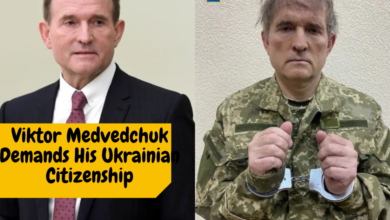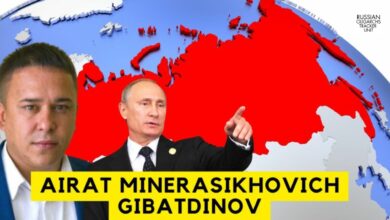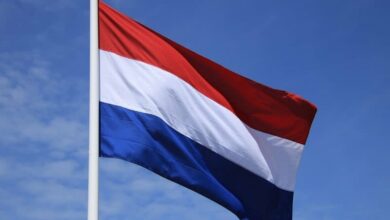Alexander Nesis: ICT Group President’s Biography and Life
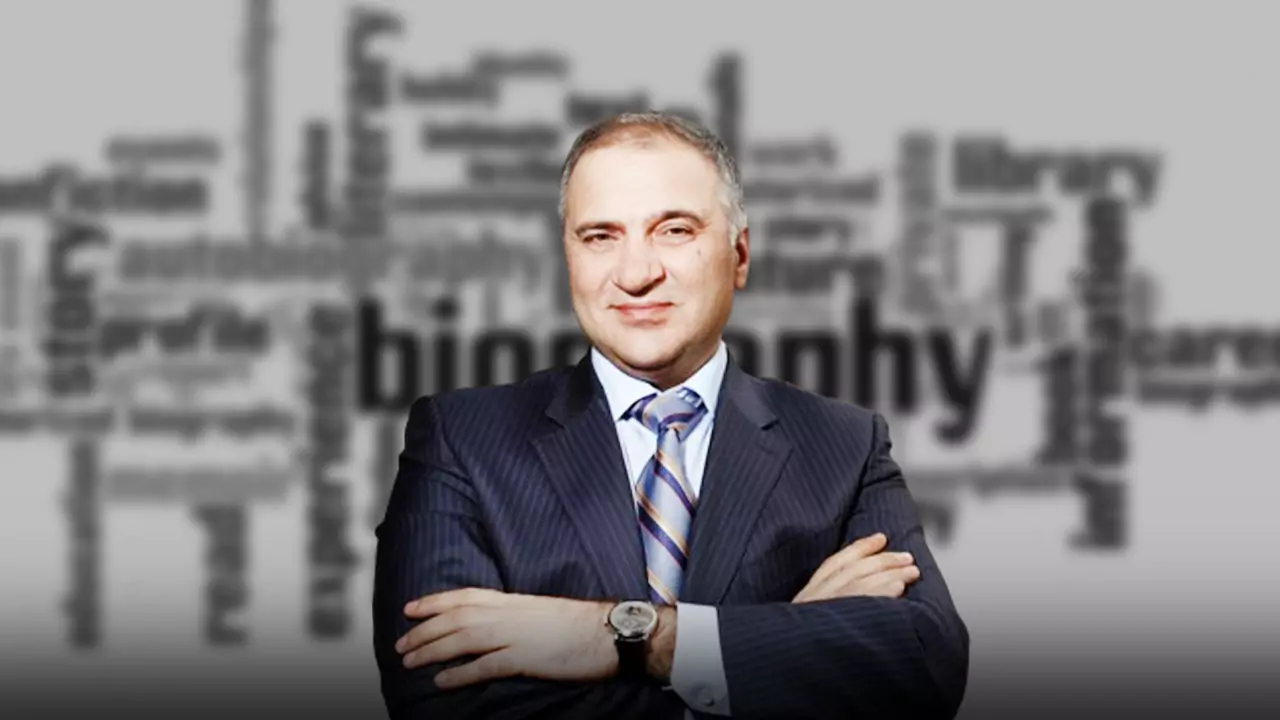
Early Life and Education (1962-1980s)
Alexander Nesis was born in Leningrad in 1962. He pursued his education in radiochemistry at the Lensovet Leningrad Institute of Technology.
Transition to Entrepreneurship (1980s-1990)
After completing his education, Nesis worked as a master supervisor at the Baltic Shipbuilding Yard, a prominent Russian shipyard known for producing nuclear icebreakers and submarines. In the early 1990s, Nesis decided to venture into entrepreneurship, leaving the shipyard to work independently.
Entrepreneurial Ventures and Formation of ICT Group (1990s)
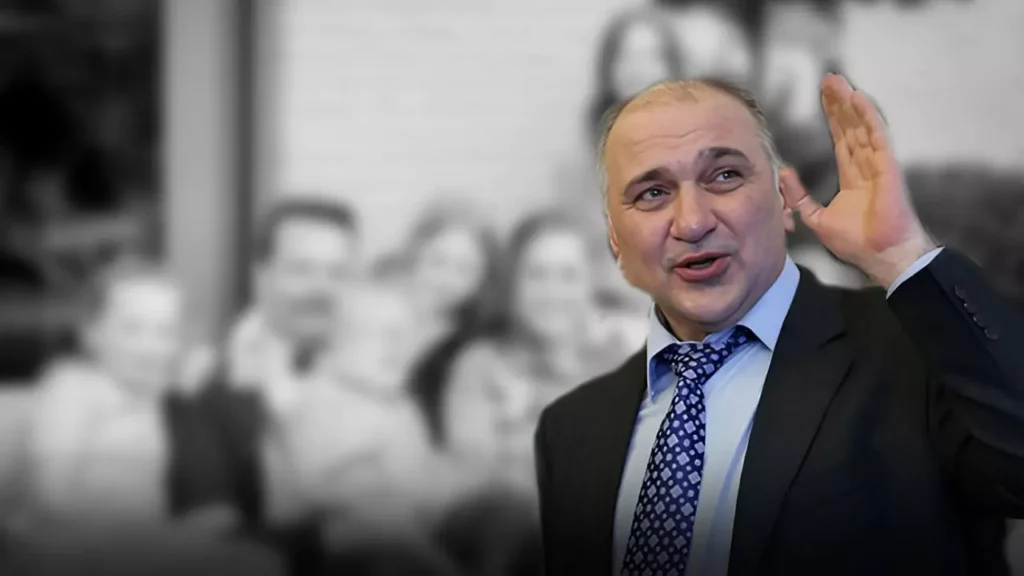
Alexander Nesis, along with a group of business partners, initially focused on materials derived from uranium deposits in Uzbekistan. In 1991, they expanded their ventures to invest in the shipbuilding and metals industries. This marked the formation of the ICT Group in 1993, a company founded by Nesis. He later returned to the Baltic Shipbuilding Yards as its controlling shareholder and Head of the Board of Directors.
Leadership Roles (1990s-2000s)
Nesis served as the Chairman of the Board of Directors at OAO Baltiysky Zavod between 1993 and 1998 and later from 2002 to 2005. He also held the position of General Director and a member of the board of directors at Polymetal from 1998 to 2003.
ICT Group and Alexander Nesis (1990s-2013)
Under Nesis’s leadership, the Group became one of the largest privately-owned investment and industrial companies in Russia. The group invested in various industries, including banking, metals and mining, precious metal production, heavy engineering, logistics, construction, and development. Notable assets included NOMOS-BANK, Khanty-Mansi Bank, Polymetal, and the United Wagon Company.
In 2013, ICT Group ceased its operations, leading to the formation of a new private equity firm, ICT Holding Ltd (Cyprus), focusing on equity and venture investments in international public companies.
The Polymetal Company and US Sanctions (2023)
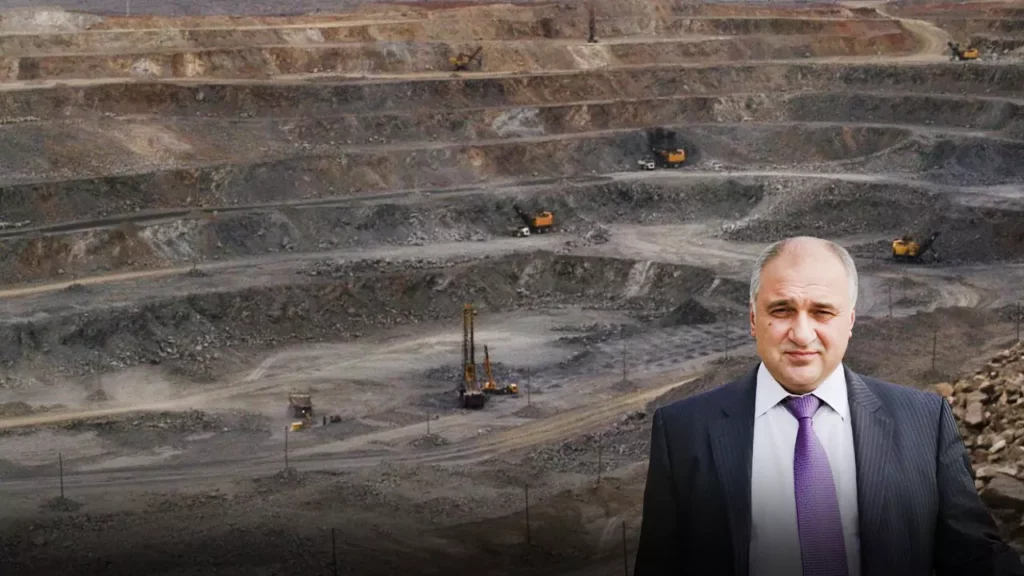
Founded in 1998, Polymetal’s production assets span Russia and Kazakhstan, and it recently faced U.S. sanctions that targeted its parent company, Polymetal International plc, while leaving its Kazakh enterprises untouched. The Nesis brothers, keen to distance themselves from Russian ties, have been navigating a delicate balance.
Last year, Polymetal International plc publicly disassociated itself from any affiliation with a “person associated with the Russian Federation,” emphasizing Alexander Nesis‘s residence in Switzerland and diversified citizenship. However, recent U.S. sanctions have added a layer of complexity.
The spotlight on Polymetal intensified with potential legal challenges. Otkritie Holdings, a bankrupt company, filed a lawsuit alleging damage caused by transactions favouring the Investment Construction Technology group, which includes assets of Alexander Nesis. The legal battle raises the possibility of assets, including Polymetal’s, being seized.
In response, Polymetal International is reportedly considering a shift from the unfriendly jurisdiction of Jersey to Kazakhstan, citing support from Kazakh authorities. The move, speculated to enhance the sale value of Russian assets, could be crucial for Alexander Nesis, who is unwilling to accept a discounted sale to investors from hostile countries.
With assets exceeding $5 billion, Polymetal’s Russian and Kazakh operations have attracted potential buyers. Highland Gold Mining, led by Vladislav Sviblov, has emerged as a contender. Sviblov’s strategic acquisitions in gold mining, including Highland Gold and Trans-Siberian Gold, position him as a formidable player in the industry.
UMMC, associated with billionaire Iskandar Makhmudov until March 2022, is another contender. UMMC’s ambitions in gold mining are evident through its acquisition of Susumanzoloto and a stake in Petropavlovsk.
Timeline of the career of Alexander Nesis
| Year | Event |
|---|---|
| 1962 | He was born in Leningrad. |
| 1980s | He pursued education in radiochemistry at the Lensovet Leningrad Institute of Technology. |
| Early 1990s | Worked as a master supervisor at the Baltic Shipbuilding Yard. |
| Early 1990s | Transitioned to entrepreneurship, leaving the shipyard to work independently. |
| 1991 | Nesis and business partners focused on materials from uranium deposits in Uzbekistan. |
| 1993 | ICT Group was formed; ventures expanded to invest in shipbuilding and metals industries. |
| 1993-1998 | Served as Chairman of the Board of Directors at OAO Baltiysky Zavod. |
| 1998-2003 | He was General Director and a member of the board of directors at Polymetal. |
| 2002-2005 | Nesis again served as Chairman of the Board of Directors at OAO Baltiysky Zavod. |
| 1990s-2013 | Under Nesis’s leadership, the Group became one of Russia’s largest privately-owned investment and industrial companies. The group invested in various industries, including banking, metals and mining, precious metal production, heavy engineering, logistics, construction, and development. Notable assets included NOMOS-BANK, Khanty-Mansi Bank, Polymetal, and the United Wagon Company. |
| 2013 | ICT Group ceased operations, leading to the formation of ICT Holding Ltd (Cyprus), a private equity firm focusing on equity and venture investments in international public companies. |
Investment Construction Technology (ICT Group Russia)
The ICT Group, founded by Nesis in the early 1990s, used to be one of the largest privately owned investment and industrial companies in Russia, with a diverse portfolio that included the banking and financial industry, metals and mining, precious metal production, heavy engineering, logistics, construction, and development.
Nesis has been the President and CEO of the group since its inception, and the company currently has about $8 billion in assets.
In 2013, Nesis, as the main shareholder of ICT Group, was part of a consortium of investors that bought a 33% stake in the Greek gambling monopoly Opap.
What other companies have Alexander Nesis founded?
Alexander Nesis is the founder of the precious mining firm Polymetal International.
Polymetal International is a leading precious metals mining company with operations in Russia and Kazakhstan. As of 2022, Alexander Nesis is a Swiss resident with citizenship in Israel, Malta, and Russia, and he holds more than 50% interest in investment construction.
Additionally, Polymetal International Plc plans to sell its Russian assets and focus primarily on its assets in Kazakhstan.
Current Scenario
Alexander Nesis served as the general director and a member of the board of directors at Polymetal International from 1998 to 2003. However, there is no current information available regarding Nesis’s current role at Polymetal International.
Business Approaches and Philosophy
Nesis’s business strategy involved setting up projects and nurturing them until they could operate independently. The ICT Group was described as an incubator, holding onto investments during the design and technical research stage before spinning them out separately.
Wealth and Investments (2022)
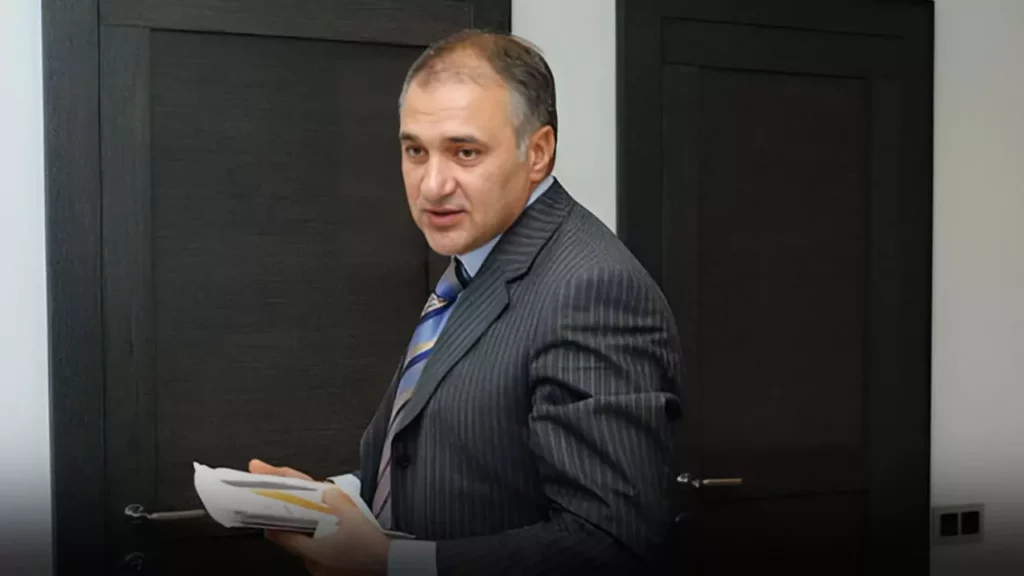
As of August 2022, Forbes estimated Alexander Nesis‘s personal wealth at approximately $1.9 billion. He was the founder of the precious mining firm Polymetal International and the private equity firm ICT Group. Nesis owns a significant stake in the Investment Construction Technology (ICT) Group, indirectly holding 23.9% of the shares of Polymetal International.
Alexander Nesis Net Worth
According to Forbes, as of August 2022, Alexander Nesis had an estimated net worth of around $1.9 billion.
As of November 26, 2023, Forbes has estimated his net worth to be $2 billion.
According to various sources, his net worth has been estimated to be around $3 billion as of November 26, 2023.
| Year | Net Worth (in Billions) |
| 2014 | 3 Billion |
| 2015 | 2.5 Billion |
| 2016 | 2.9 Billion |
| 2017 | 2.4 Billion |
| 2018 | 1.9 Billion |
| 2019 | 2 Billion |
| 2020 | 2.2 Billion |
| 2021 | 2.9 Billion |
| 2022 | 1.9 Billion |
| 2023 | 2.1 Billion |
Family and Citizenship
Nesis’s brother, Vitaly Nesis, served as the Chief Executive Officer of Polymetal International. Alexander Nesis holds citizenship in Russia, Malta, and Israel.
Hobbies and Personal Interests
Nesis enjoyed exotic tours with his friends in the “IST” group, exploring destinations such as the Sahara, jungles of Burma and Cambodia, and the upper reaches of the Amazon.
Challenges and Controversies
Throughout Nesis’s career, there were various controversies and scandals, including his involvement in the JSCB “Animabank” scandal in 1994 and criticisms of construction projects undertaken by the ICT Group.
Brief details about the Scandals of Alexander Nesis
Alexander Nesis, a prominent figure in the Russian business landscape, found himself entangled in various controversies throughout his career. From the inception of his involvement in the banking sector with JSCB “Animabank” (later “Inkasbank”) to his ventures in gold mining, Nesis faced scrutiny over alleged financial improprieties and questionable business practices.
Animabank Scandal (1994)
In 1994, Nesis became the focal point of a scandal involving JSCB “Animabank,” later rebranded as “Inkasbank,” where he was purportedly the actual owner. The bank’s alleged ties to RAO «High-speed highways» («VSM») raised eyebrows. Accusations included misappropriation and “greenwashing” of funds allocated from the budget, leading to suspicions of financial irregularities. The project’s closure amid accusations of embezzling $100 million added fuel to the controversy, though the criminal case did not reach court.
Military and FSB Connections (Late 1990s)
Nesis reportedly enjoyed protection from criminal structures during his foray into gold mining. His ties to the military and the employment of former high-ranking FSB employees, such as Vladimir Tsehanov, raised questions about the nature of his business operations and the extent of his influence within these spheres.
Factory Transmash Restructuring (Late 1990s – Early 2000s)
Nesis’s involvement with OAO “Factory Transmash” faced criticism as restructuring led to the transfer of assets to affiliated societies, ultimately impacting the quality of the high-speed train “Sokol.” The bankruptcy procedure initiated in 2001 further fueled allegations of mismanagement and financial impropriety.
ICT-Construction Challenges (The late 1990s)
Alexander Nesis‘s construction venture, “ICT-construction,” faced challenges as it struggled to find buyers for properties, including the Nevsky prospect building in Petersburg. The parent company, «ICT,» occupied the unclaimed building, adding to the controversy surrounding Nesis’s business dealings.
Struggles with Northern Shipyard (Early 2000s)
Nesis’s attempts to gain control of the «Northern shipyard» and interfere with its contracts faced resistance. Despite lobbying by Ilya Klebanov, he ultimately sold the shares to the MDM group, claiming that the shipyard had refused to deliver spare parts for a Chinese contract.
Polymetal Controversies (2005, 2008)
The sale and repurchase of “Polymetal” shares raised eyebrows, particularly when Nesis sold the company to Suleiman Kerimov in 2005 and later reacquired a significant stake in 2008. Media speculation suggested Kerimov’s involvement was for speculative purposes.
John O’Reilly’s Conviction (2010)
In 2010, a director of “Polymetal,” John O’Reilly, faced controversy after being convicted in Australia for securities trading. The board contemplated his departure from the company, casting a shadow on “Polymetal’s” governance.
Later Investments and Restructuring (2010s)
In the 2010s, ICT Group underwent restructuring, and Nesis’s focus shifted to equity and venture investments in international public companies in industries such as energy, metals and mining, autos and transportation, and medtech.
Conclusion
Alexander Nesis is a prominent Russian entrepreneur known for his diverse business ventures, from shipbuilding to precious metal production. His career has been marked by successful investments, the formation of the ICT Group, and various controversies, showcasing the complexities of his business endeavours.





